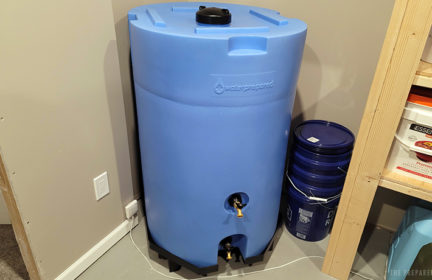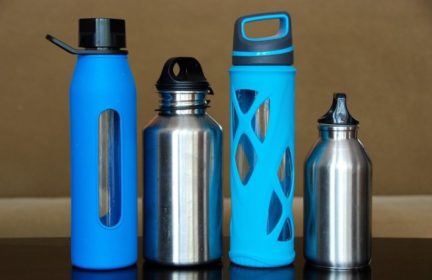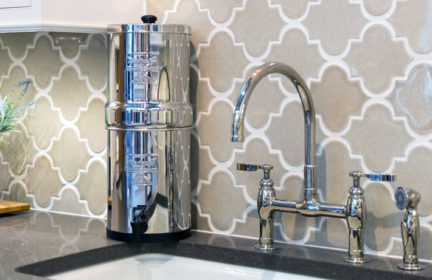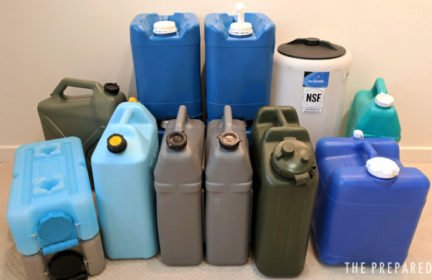Are five-gallon water dispensers good for water storage?
Hi everyone- I am so happy I stumbled upon this page. I am new to all of this and just starting my prepping journey. COVID was a major eye opener. When the shut downs started, there was nothing at our local grocery stores and I felt like I could not provide what was needed for my family and I NEVER want to feel like that again.
My current question is in regards to water storage. I read the blog post on the emergency water containers but are those what is best to store water at home or are the 5 gallon water dispensers a good option too?
Thanks in advance for the input!
CC.
-
Comments (17)
-
Gideon ParkerStaff - October 3, 2020
Welcome to the website and forum!
I’d love to help you out with your question on water storage, but could you clarify your question?
Is this the blog post you read? And your question is asking if that is the best way to store water or if a 5 gallon water dispenser is. When you say 5 gallon water dispenser, I am picturing this. Is that what you are referring to?
-
ccross - October 3, 2020
Sorry! I was not very clear. Yes, that is the blog post and the type of water dispenser I was referring to. Would it just depend on what kind of situation I was prepping for? Smaller emergency containers like in the blog post for leaving the house? 5 gal water dispenser for shelter in place/loss of water supply at home?
-
Gideon ParkerStaff - October 3, 2020
No worries at all! 🙂 thank you for clarifying, I want to make sure I give you the right answer.
So in that blog post, it does actually go over the water dispenser option you are talking about. In a very small sections, they are reffered to as office jugs. Here is a quote from the article:
“Office jugs (the big upside down ones) have similar problems. They are mostly transparent, hard to handle, and not designed for long term storage or emergencies. What if you don’t have the base part? How do you reseal the jug?”
I do have to agree with the article and here is my personal reason why:
- They are transparent, which can lead to bacteria growth if sun hits it. Which can maybe be avoided if stored in a closet and rotated through regularly.
- All the recommended jugs and cans in the article have handles, which would make it so much easier to move around, and many can be stacked or at least say together closely to save space.
- The recommended jugs have spigots you can attach to the opening which makes it so you don’t need to have the water dispenser base
- And the office jugs usually just have a snap on lid which can come off easily. The recommended jugs from the article all have tight fitting screw on lids.
Here are some reasons why I think the office jugs might be a good solution for you:
- If you have access extra ones for free from work or something, that is a very cheap storage solution.
- If you already enjoy and use them and it works for you guys, then keep doing it.
- If you use them on a regular basis and rotate through them so bacteria doesn’t grow, then the opacity isn’t as big of a factor.
- Office jugs might be just fine for bugging in, but if you need to leave for any reason, I think all the others are much better.
I think the article is written mostly for people who would just fill up the containers and store them long term. They need non-transparent containers and have durability in mind. Those office jugs are pretty tough though, besides the weak point of not having a screw on lid, they can be tossed around quite a bit.
Hope that helps.
I’m curious, why do you like the office jugs? Is there a benefit about them we missed?
-
-
matthew.Contributor - October 5, 2020
I too have a question about water storage. Over the years I’ve read conflicting information about stroring water that you bottle yourself compared to bottled water you buy at the store and stash away for an emergencey. It’s been my understanding that sealed, store-bought bottled water, especially the better brands that package their product in a higher-quality ‘clear’ plastic, is better long-term, since the water was bottled and sealed under sterile conditions (this is according to the Red Cross). But that contradicts The Prepared’s write-up, which advocates for purchasing water-storage containers and self-bottling.
I suspect the right answer is a little bit of both, but I’m curious what everyone’s thoughts are on this? Seeing that you can buy a quality gallon of bottled water for a buck, compared to the storage options that start around $20, there’s an arguement to be made that bottled water from the store is the better, or at least cheaper, route.
-
Josh CentersContributor - October 9, 2020
Either one should be fine. Commercially bottled water has a near-infinite shelf life as long as it remains sealed. Treated water from a tap should be equally resillient in a proper container.
-
-
RD126 - October 6, 2020
Building on this thread, I now reside in SW FL and have an inquiry on water storage. When I lived in CT I had plenty of indoor temperature controlled storage where I was able to store a combination of 1 gallon jug cases and 24 count bottled water cases. My average temp in my garage now sits at about 80-85F which is where I have space to store water supplies. Do I need to rotate water more frequently? Other concerns I should be aware of and factor into my planning?
-
Olly Wright - October 7, 2020
Great question! I lived in Miami FL for a summer in 2002 and it sure was hot.
The Prepared has a good water storage article that sure helped me out last year when I was thinking seriously about prepping.
I’ll just list a couple things below that I read from the article that might answer your questions, but you should go and read it.
- Light, heat, and bacteria are the enemies of clean water storage.
- With the right container, water source, and storage, water can safely last 3-5 years — but we recommend rotating it every 2-3 years. (you might want to rotate through every 1.5-2 years.)
- Plastic can absorb chemicals, so try not to store water containers on cement garage floors or other places where it will contact bad stuff. (i’ve also heard that exhaust fumes from vehicles can also leech into the plastics of water in garages. Don’t quote me though)
I think a few 1 gallon and 24 count water bottle cases are ok, but I like what they say in their article and I personally have bought the 3.5 gallon Waterbrick that they list in their article. Great for stacking. Every year I ask my brother-in-law for one for my birthday and one for christmas. It slowly is building up!
-
RD126 - October 7, 2020
Olly,
Thanks for the follow up and points. Much appreciated.
RD 126 -
RD126 - October 7, 2020
Digging into this a bit more and using a little Google-Fu, I found Sportsman Club has the WaterBricks for $19.99(non-member) or $17.99(member price). Way better price than Amazon!
-
-
Sorcer Gamble - October 8, 2020
Depends largely on the size of your family and the length of time you want to be prepared for. A gallon per person per day for emergency use. Ie; a family of four prepping for a winter storm 2 week power outage would need 112 gallons of water. Meaning two 55 gallon blue plastic drums or barrels. 100 dollars each new shipped to your door. City water has already been treated but use 3 ounces of unscented bleach per barrel. (6 ounces if ur using the cheap brand because the hypochlorite content is only half as much.) Preferably in a climate controlled environment (cool and dark place) with a sheet of wood or pallet keeping it off of cement.
-
hikermor - October 8, 2020
Just fill clean containers with tap water and store out of the light in as cool a place as possible. I have been doing this for years with no probem. If contaminated, boil and/or don’t ingest – there are lots of other ues for water besides drinking..
Learn about possible emergency water sources, like isolated mountain springs – usually preferable to downstream river water which may well be polluted and non drinkable.
-
FPV California - October 11, 2020
I think 56 gallons of water not 112 for a family of 4.
4g per day x 14 days = 56g112g would get you 4 weeks which is even better.
-
Rebecca Sewell - January 20, 2021
Check out this place! https://barrelsuperstore.com/shop/ols/categories/emergency-water
Lots of barrels of all kinds, and sale prices on many!
-
-
Rita Colgan - October 9, 2020
Hi, CC. Yes, the COVID Pandemic has been a test of our endurance.
My niece and her husband are homesteaders. They use the big, blue plastic water containers and attached a spout for their convenience. These blue containers are stackable.
5-gallon dispensers are fine. Remember, each person (children, too) needs a gallon of water a day. If your power is lost, you need a backup such as solar, battery, or a generator.
You may want to consider a hand pump for your well. You know… the kind you see on farms, or horse stables. You can have a good water supply this way. There are videos to show how to install this pump.
If you have pets, use a big water dish for them instead of going back and forth to fill their water bowl. The big water dish/bowl will last all day for the pets. Save your energy. This is what I do for my 2 dogs.
Best wishes, CC.
-
Cro - October 11, 2020
I struggled with water storage and finally came to the conclusion that I needed to treat it like a deep pantry since, in general, water needs to be rotated every 6 months. In the past my solution was to stock up and put my water in a remote corner where I don’t have to think about it and then — oh whoops, my stored water is now several years old and what would have happened if there had been an emergency? An actively used supply with some depth is now my preference.
For that reason, I think that a water dispenser and bottles is a great solution as long as you keep rotating so that no one bottle sticks around for more than six months. It is also easy to build your store on a budget by simply ordering an extra bottle or two periodically until your reserve is the size that you want it to be.
-
Matt Black - October 13, 2020
Welcome.
COVID’s been an eye opener for a lot of people. This election season, too. It’s all so new and scary and uncertain.
Here are some bigger, broader takeaways for water (in addition to TP’s blog post -which you read). I find that the concepts are as important -if not more important- than the actual gear. Though, having really good, reliable gear can be a lifesaver.
Takeaway #1: The average adult human is going to require at least 1 gallon (3.78L) per day, though this number may fluctuate in hotter climates [see #4, later]. Remembering what you’ll need daily is easy to remember, especially if it’s just you. If there’s more than one person, just multiply by the total number of people.
Where things get fun is when you consider how many people will need water and whatever length of time you’re preparing for.
3-7 days is pretty standard fair for short-term events (power outage, water main break). 7-14 days for longer interruptions/disruptions. Some (myself included) prep for month-long (or longer) periods without water. Saving/Preserving a month’s worth is easy for 1 person (31gal), but other things need to be accounted-for: total people, storage container, storage space, rotation of stock, etc.
It’s easy to spiral. Focus on the concepts.
Takeaway #2: Whatever amount of water you decide save, it’s important for you to know that it’s just there to get you over a hump -a big ol’ invisible hump o’ uncertainty that you can never truly account-for much less prepare-for.
In more practicle terms, my 49+ days of water may be enough to tie me over for a hunker-down situation with no available running water. After that, I’ll need to find water.
Takeaway #3: After your home water reserves are depleted, you’ll want to locate, then filter and/or purify any water encounter in the wild. Check out TP’s blog about water filters. Some really good product tips there. I vouche for the Sawyer myself.
Get an SAS (or other, similar) Survival Guide and read up on sourcing water in the wild -especially important if you have to give up your supplies, gear, etc. Let’s just hope it never comes to that, agreed?
Takeaway #4: Globally, we are finding ourselves on the verge of freshwater scarcity. Thanks, climate change -and deniers. Ultimately, this will lead to competition for water. Without fresh water, life on Earth is unsustainable. That’s just a fact.
The best we can do, collectively, (and not to turn this all political) is to vote the people into public office that can enact real, well-reasoned, scientifically-backed policies that take a “let’s stop risks with our environment and gambling with human life NOW” approach. Or, at the very least, vote for the candidate that will do the least harm. Anyone but the ones rolling back environmental protections and letting corporations dump their toxic shit into OUR water.
-
Illini Warrior - November 19, 2020
yes and no …
the bottles aren’t manufactured for long term storage – many today are not re-fillable and part of a delivery water supply system – they are nothing but single use retail shelf bottles like the individual pint/quart bottles.
the positive part is that you have water on hand and in today’s world a common & accepted practice that doesn’t draw attention. Uber important in an apartment type situation – your extra bottles in reserve could actually be stored in a common space like a hallway, entryway or storage room. Not likely a neighbor steals water.
if you want a serious water reserve – buy long term storage containers like Reliance or Coleman brand – larger 30 & 50 gallon barrels if the storage room is there.
-
- Building a ‘hospital bag’ - 1 day ago
- News for the Week 2025-12-01 - 6 days ago
- News for the Week 2025-11-24 - 2 weeks ago
- News for the Week 2025-11-17 - 3 weeks ago
- News for the Week 2025-11-10 - 4 weeks ago
This forum is heavily moderated to keep things valuable to as many people as possible. Full community policies are here. The basics:
- 1. Be nice to each other.
- 2. Stay focused on prepping.
- 3. Avoid politics, religion, and other arguments.
- 4. No unfounded conspiracies, fake news, etc.
- 5. Debate ideas, not people.



